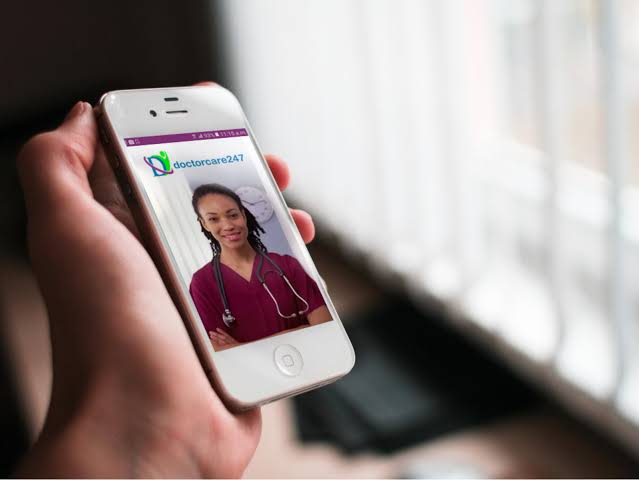As COVID-19 has become a global pandemic, the reality is that managing it effectively has posed a threat to the provision of other healthcare services.
Telehealth may be an efficient way to reduce the pressure on patients and hospitals.
The COVID-19 pandemic is accelerating the long-anticipated surge in telehealth services worldwide.
Consulting a health care provider over phone, video or text has become the new normal for many non-urgent medical needs, while the crisis has sparked renewed interest in digital tools that can test and monitor at-risk patients safely in their homes.
Generally defined as an exchange of medical information using telecommunications, the industry has evolved to encompass technologies that link health providers with home-based tools to track patient biometrics, such as digital stethoscopes and otoscopes.
Many conditions can now be monitored remotely – ranging from chronic diseases to mental health – with app-based solutions that connect patients to their providers.
 Before the pandemic, the global telehealth industry was already expected to grow at an estimated 15 per cent a year by mid-decade according to a World Bank data but some analysts believe it will now accelerate to 19.3 per cent and forecast a projected value of $175.5 billion over the same period.
Before the pandemic, the global telehealth industry was already expected to grow at an estimated 15 per cent a year by mid-decade according to a World Bank data but some analysts believe it will now accelerate to 19.3 per cent and forecast a projected value of $175.5 billion over the same period.
Much of that growth is linked to emerging markets, which are quickly adopting telemedicine to provide health care to underserved populations.
While telehealth technology and its use are not new, widespread adoption among HCP and patients beyond simple telephone correspondence has been relatively slow.
However, during the pandemic, telehealth has helped health workers triage some patients through virtual consultations, using new technologies to protect patient privacy.
Screening patients before they arrive at a clinic or emergency room improves efficiency and safety, since pre-screened patients generally spend less time waiting for care and providers have a better idea of what services will be needed.
Recent policy changes during the COVID-19 pandemic have reduced barriers to telehealth access and have promoted the use of telehealth as a way to deliver acute, chronic, primary and specialty care.
Many professional medical societies endorse telehealth services and provide guidance for medical practice in this evolving landscape. Telehealth can also improve patient health outcomes.
For example, during the early days of the coronavirus in Nigeria, the Lagos State government in April, through the Lagos State Health Management Agency introduced the ‘Eko Telemed’, a Telemedicine initiative to cater for Health issues not related to COVID-19 during the pandemic.
 Emmanuella Zamba, the Director-General of LASHMA, said the Eko Telemed provide 24/7 health care to Lagos residents during the pandemic and aimed at protecting citizens and reducing their risk of contracting the COVID-19 infection.
Emmanuella Zamba, the Director-General of LASHMA, said the Eko Telemed provide 24/7 health care to Lagos residents during the pandemic and aimed at protecting citizens and reducing their risk of contracting the COVID-19 infection.
In fact, the Lagos initiative is designed to cater for patients the four major languages in Lagos State – English, Yoruba, Hausa and Igbo.
The Abia State government also introduced telemedicine in the state aimed at making healthcare delivery more accessible to the citizens.
The State’s telemedicine prrogramme was designed to allow healthcare professionals to evaluate, diagnose and treat patients at a distance using telecommunications technology.
According to Governor Ikpeazu, Abia State is the first place in Nigeria and Africa where primary healthcare centres are driven by the internet.’
In a recent survey on the use of telemedicine amidst the coronavirus pandemic, a whopping 70 per cent agreed that telemedicine is going to be the future of healthcare in India.
The survey saw maximum participation by the millennials. About 53.2 per cent of these were females of all age-groups.
The survey said there is a consensus that telemedicine is going to be here for a long haul.
The majority of participants admitted to using telemedicine at least 2-3 times in the past four-five months.
About 40 per cent of them said that they used telemedicine the most during the lockdown period.
About 60 per cent of respondents said they found it relatively easy to book an appointment online for a virtual consultation, especially amidst social distancing protocols.
 Ayush Mishra, CEO, Tattvan E-clinics, said “The pandemic has forced people to stay at home and cancel all traditional medical appointments. This resulted in an emerging opportunity to implement new technologies and strategies as the field embarked on a new frontier of healthcare.”
Ayush Mishra, CEO, Tattvan E-clinics, said “The pandemic has forced people to stay at home and cancel all traditional medical appointments. This resulted in an emerging opportunity to implement new technologies and strategies as the field embarked on a new frontier of healthcare.”
“As per the survey, around 70 per cent agreed that tele-health consultations are going to be the new normal for the healthcare sector in India. It is still complicated due to the barriers like education, innovations, language, etc, but the landscape of telemedicine could continue to change, to the betterment of physicians and patients alike,’ he added.
Commenting on the survey, Chuks Melville Chibundu, the chief executive officer of Wellspring Technologies- an IT solutions firm that launched the popular Doctorcare247 in a statement said “There is an increasing demand for telehealth services in Nigeria in the coronavirus pandemic because of the safety they bring to both patients and providers from getting infected.”
Doctorcare247 is a robust integrated telehealth platform that enables doctors and healthcare specialists diagnose and treat patients online.
Consultations are done though a secure high definition video chat, texts or calls with all records held in a secure cloud storage. Consultations is offered for general wellness, child wellness, mental wellness and lifestyle management.
The platform enables real time remote consultation and non-invasive diagnosis between patients and doctors from the comfort of any location in Nigeria or around the globe.
“Our healthcare solutions strike at the core of our challenges, such as access, quality of delivery, data management, and accurate diagnosis. Our goal is to catalyse healthcare delivery through affordable, appropriate and cost-effective technologies that supports government’s policy efforts in enhancing quality healthcare delivery in Nigeria,” Chibundu said.
His advice: “When you’re sick and need to see a doctor, our team is standing by around the clock. Available 24/7, our providers can help get you on track as well as order prescriptions, if needed. We’ll take the hassle and guesswork out of feeling better.”
Doctorcare247 is located at Plot 78, Block 28, Babatope Bejide Street Off Fola Osibo Street, Lekki Phase 1 Estate Lekki, Lagos Nigeria. They are available by mail at: [email protected] and on call at +234-9018559859 or +234-90966-66674.
The providers say they plan a network of telehealth neighbourhood centres in the communities in collaboration with primary healthcare centres andcommunity pharmacies. This will serve as centres of convergence for those with limited internet access to utilize telehealth services. “This will help us continue to see patients and have options for telehealth and in-person appointments,” Chibundu said.
According to the US Centers for Disease Control and Prevention, an equivalent of the Nigerian Centre for Disease Control (NCDC), Telehealth services can facilitate public health mitigation strategies during this pandemic by increasing social distancing.
“These services can be a safer option for health care providers and patients by reducing potential infectious exposures. They can reduce the strain on healthcare systems by minimizing the surge of patient demand on facilities and reduce the use of PPE by healthcare providers,” the CDC said.
Additionally, maintaining continuity of care to the extent possible can avoid additional negative consequences from delayed preventive, chronic, or routine care. Remote access to healthcare services may increase participation for those who are medically or socially vulnerable or who do not have ready access to providers. Remote access can also help preserve the patient-provider relationship at times when an in-person visit is not practical or feasible.
In fact, the CDC said “Telehealth services can be used to: screen patients who may have symptoms of COVID-19 and refer as appropriate, provide low-risk urgent care for non-COVID-19 conditions and identify those persons who may need additional medical consultation or assessment, and refer as appropriate.”
The CEO of Wellspring Technologies, Chibundu adds that their own teleheath service- Doctorcare 247- can be used for all of the above including to access primary care providers and specialists, for chronic health conditions and medication management.
“We provide coaching and support for patients managing chronic health conditions, including weight management and nutrition counseling. Doctorcare247 monitors clinical signs of certain chronic medical conditions (e.g., blood pressure, blood glucose, other remote assessments) and engage in case management for patients who have difficulty accessing care (e.g., those who live in very rural settings, older adults, those with limited mobility),” he explained.
Indeed, Doctorcare247 is important in following up with patients after hospitalization.
It is important to note that it also provides education and training for medical personnel through peer-to-peer professional medical consultations (inpatient or outpatient) that are not locally available, particularly in rural areas.
The rise of telehealth may help shape global economic recovery in a post-pandemic world, with the potential to provide safe, efficient and cost-saving health care to remote and underserved populations.

 Join Daily Trust WhatsApp Community For Quick Access To News and Happenings Around You.
Join Daily Trust WhatsApp Community For Quick Access To News and Happenings Around You.


